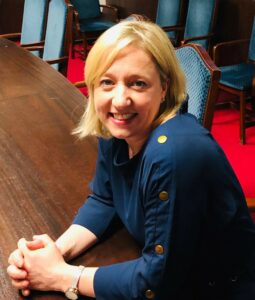Unlocking the potential of NHS data: A vision for a unified health data platform

By Ruth Holland, Director of Data & Analytics, London Secure Data Environment, OneLondon Health Data Portfolio, and Mark Kewley, Programme Director, London Secure Data Environment, OneLondon Health Data Portfolio.
The landscape of healthcare is increasingly being shaped by the effective use of data, yet the journey towards realising the full potential of NHS data is fraught with challenges. At the core of this transformation is the OneLondon programme, an ambitious initiative that seeks to overcome the fragmentation of health data across the capital and, ultimately, improve patient care, operational efficiency, and research outcomes.
The origins of OneLondon: Addressing fragmentation
The OneLondon programme was born out of a need to address a longstanding issue within the NHS: the fragmentation of health data. Historically, patient information has been scattered across various care settings, making it difficult for both healthcare providers and patients to access a complete picture of an individual’s health. This fragmentation not only hampers the delivery of efficient care but also limits the ability to derive meaningful insights from the data.
In response, London’s healthcare leaders embarked on a journey to create the London Care Record, a unified platform that allows for the sharing of relevant patient data across care settings. Initially focused on providing a ‘view-only’ access to patient information, the programme has now evolved into a more sophisticated data platform capable of generating actionable insights for both direct care and research purposes.
Building a comprehensive data platform to support integrated care
Our efforts have now moved beyond simply making data accessible. The goal, which is supported by funding from the NHS England Data for R&D Programme and London’s integrated care systems (ICSs), is to create a London-wide data platform that can provide insights that inform care decisions at both the individual and population levels. The transition from a ‘view-only’ system to a dynamic data platform represents a significant milestone. It allows us to harness data from across London’s health system to support integrated care, drive proactive care strategies and facilitate advanced research.
In North West London ICS, for example, we’ve seen the success of integrating data across different care settings. Clinicians now have access to a comprehensive view of their patients, enabling them to deliver more informed care. The next step is to expand across London and incorporate data from all other care settings for the population of 10.6 million people.
Leveraging advanced technologies
Central to this transformation is the integration of cutting-edge technologies like Federated Learning Interoperability Platform (FLIP) and AI tools. These tools enable us to bring together different types of data, such as electronic patient records and radiology images, into a single, interoperable platform. By doing so, we can develop predictive models that not only support clinical decision-making but also enhance the accuracy and efficacy of research.
The use of natural language processing (NLP) to convert unstructured data into structured formats is a significant advancement. With approximately 80-90 per cent of healthcare data stored in unstructured formats, such as clinical notes and images, NLP allows us to unlock a wealth of information that was previously inaccessible. This capability is crucial as it significantly increases the insights we can derive from our data, paving the way for more personalised and effective healthcare solutions.
Ruth Holland will be the Chair of a Spotlight session with Dr Jessica Morley at Digital Health Rewired 2025, taking place 18-19 March in Birmingham.
Overcoming challenges through collaboration
The scale and ambition of the OneLondon programme are unprecedented, and so are the challenges. Integrating data across multiple care settings, ensuring stakeholder alignment and navigating complex information governance (IG) issues are just a few of the hurdles we face. However, these challenges also highlight the importance of collaboration.
We’ve worked extensively with the public to understand their expectations around data use, and this feedback has been invaluable in shaping our approach to IG. The public’s support for data integration across care settings has provided a strong mandate for us to push forward with this initiative. Additionally, our collaboration with data controllers, particularly GPs, has been critical in ensuring that the platform brings tangible benefits back to the practitioners who contribute to it.
A vision for the future
The vision for OneLondon is clear: a comprehensive, interoperable data platform that not only supports the immediate needs of patient care but also drives long-term improvements in population health and research. While we recognise that we are still at the early stages of this journey, the progress we’ve made thus far is encouraging. The successful integration of data in North West London serves as a model for the rest of the city, and with continued investment and collaboration, we are confident that we can achieve our goals.
The OneLondon programme represents a bold and necessary step towards a future where data is used to its fullest potential to improve health outcomes. By overcoming the challenges of data fragmentation, leveraging advanced technologies, and fostering collaboration across the healthcare ecosystem, we are laying the foundation for a more integrated, efficient, and patient-centred NHS.
Ruth Holland will be the Chair of a Spotlight session with Dr Jessica Morley at Digital Health Rewired 2025, taking place 18-19 March in Birmingham.
